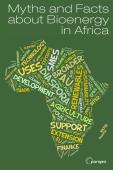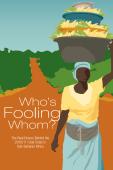Over the past few years the employment creation potential of activities beneficial to the environment has been receiving increasing attention through the term of ‘green jobs”. These jobs are often understood to be those involving the implementation of measures that reduce carbon emissions or help realise alternative sources of energy use in developed economies. This paper explores the potential for governments to create “green jobs” and align poverty reduction and employment creation in developing countries with a broader set of investments in environmental conservation and rehabilitation to also preserve biodiversity, restore degraded land, combat erosion, and remove invasive aliens etc. In many cases, environmental degradation has a devastating direct effect on the poor, whether they themselves are the main cause of this degradation or not, and indications are that well designed interventions can contribute directly to the poverty-environment nexus by allowing income generated from environmental activities to ease the pressure on generating income through exploiting the environment.
This study analyses trends and opportunities for trade among developing countries (i.e. South-South trade) in selected environmental goods, in order to assess the contribution such trade can make to a green economy transition. The term ‘developing countries’ includes all countries and territories listed as developing economies in the UNCTAD Handbook of Statistics (UNCTAD, 2012). The study focuses on South-South trade flows in several RE products and their components, including solar photovoltaic (PV) cells and modules, wind turbines, hydroelectric turbines, biomass feedstock, solar water heaters and solar lighting equipment, as well as other select environmental goods. The latter include water filtering and purification equipment and environmentally preferable products, such as organic agricultural goods.
This report on inclusive green growth by infoDev and the World Bank reveals valuable insights from community outreach workshops conducted in South African townships for the Climate Innovation Center (CIC) in South Africa. The report does not present a one-size-fits-all solution to implement inclusive green growth strategies across all developing countries. The reports findings are observed in light of the Gauteng Climate Innovation Centre, which aims to facilitate and foster innovative clean technology entrepreneurship within the context of the surrounding township communities.


